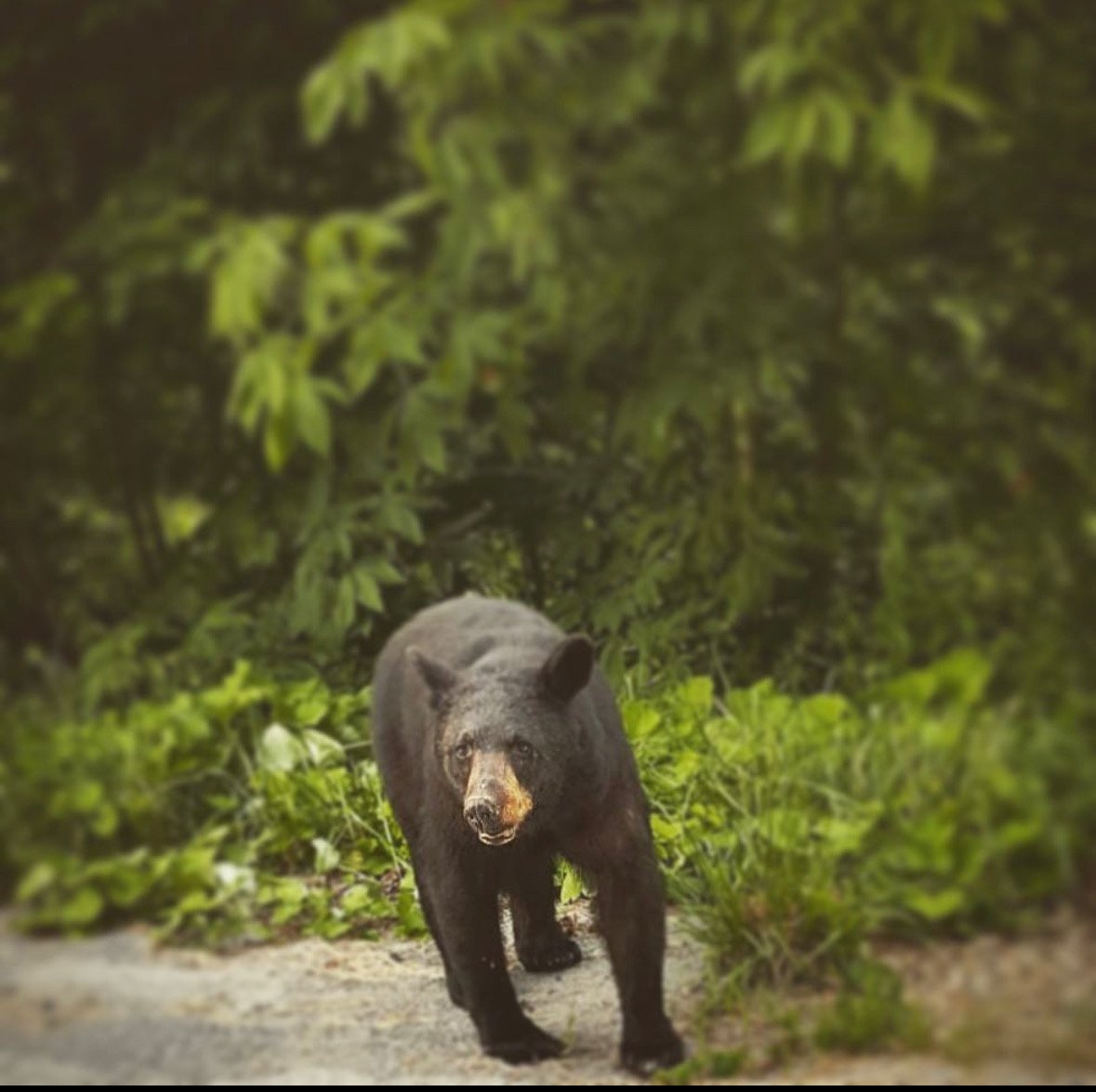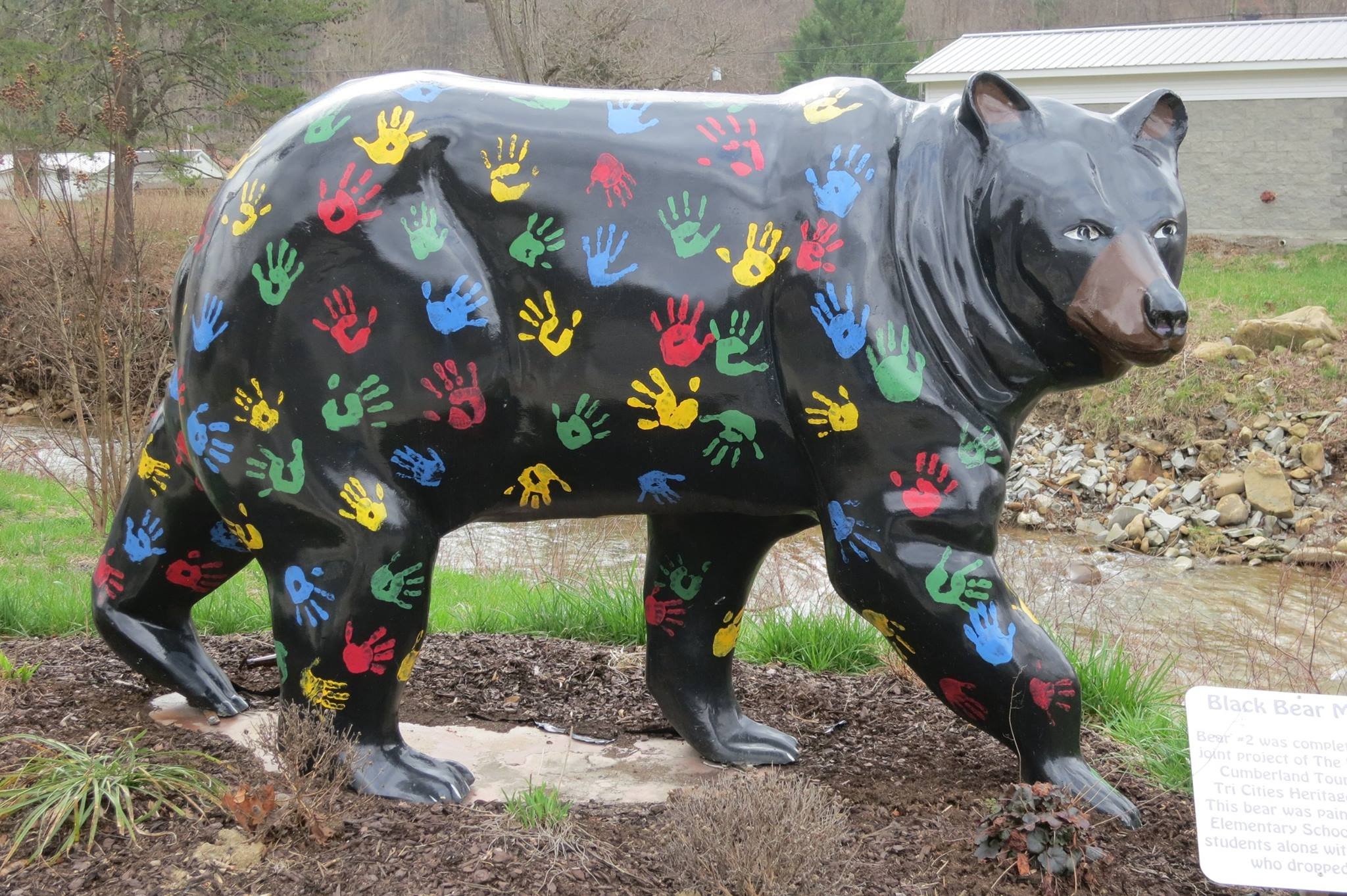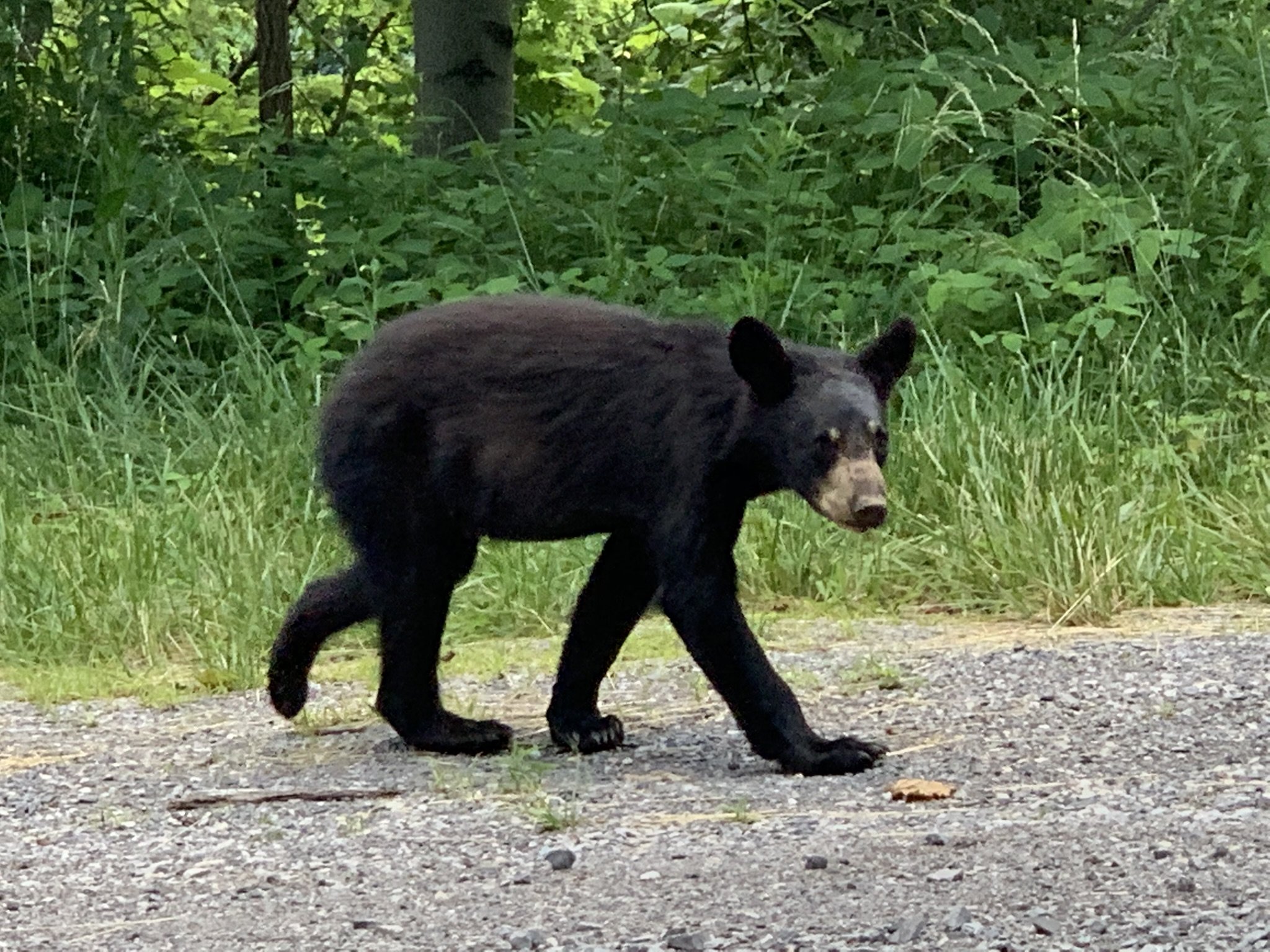
Our Bears
“Look, but don’t touch and don’t feed”
Known as the bear capital of Kentucky, you’re likely to see one (or several) on the mountains or sometimes even around town. Enjoy the sight, but please don’t get near them and don’t ever feed them.
“Help protect Kentucky’s bears by being responsible and following our guidelines for living in bear country. Doing so will not only help us keep bears wild in Kentucky, but it just may save a bear’s life. ”
“Residents and visitors to Kentucky need to be responsible, so negative behaviors in bears are not encouraged. Doing so will not only prevent nuisance problems for you and your neighbors but will ultimately maintain the integrity of our bear population by keeping it wild.”
Quick facts about our bears
They grow to 4-6 feet in length
They are typically black with a brown muzzle and some have a white patch on their chest
Adult females usually weigh 120–170 pounds and adult males average 250–350 pounds (the KY record was nearly 500 pounds)
Their large claws and powerful legs give bears an incredible climbing ability
They can run up to 35 miles per hour for relatively short bursts
Bears may live 15–25 years in the wild
Black bears are omnivorous, meaning their diet consists of both animal and plant matter, but feed primarily on grasses, berries, insects, and grubs
It is not uncommon for a bear to almost double its summer weight after spending the fall months feeding on acorns preparing for winter
The average litter size is two; babies are born in January and weigh only 8-16 ounces at birth but are 5-10 pounds by the time they emerge from their dens in the spring. They remain with their mother for an entire year and weigh 20-100 pounds when they strike out to establish their own new territory.
Black bears typically don’t fully hibernate but instead enter a sleep-like state referred to as “winter torpor” (Nov-Mar) in which they are fully capable of moving and even exiting the den. Their metabolism slows so that all reserve energy is used for basic life functions and milk production for cubs.
They are solitary animals and the majority of their time is spent alone and on a seemingly endless quest for food, mostly during the early morning and late evening hours
They are naturally shy and elusive animals that generally avoid contact with humans
Most conflicts result from intentional feeding, or access to other human-related sources such as garbage, pet food, livestock feed, and birdfeeders. This can create cycles of behavior that can be very hard to break. Unfortunately, bears can become so tolerant and bold around people that issues of human safety arise. In those instances, bears may have to be trapped, relocated, or even killed.
While bears may appear very calm and non-threatening, they should be treated with respect as they are wild animals whose behaviors can be unpredictable
If you encounter a bear…
Following these simple guidelines will minimize any unnecessary and potentially dangerous encounters.
Never approach a bear!
Black bears are extremely powerful animals whose behaviors can be unpredictable.
Black bears are very curious animals and this should not be confused with aggression.
If a bear approaches you in the wild, it is likely only trying to assess your presence.
Bears will often stand upright to obtain a better sense of smell.
If you see a black bear from a distance, alter your route of travel.
When camping in bear country, keep all food stored in a vehicle or away from tents.
If approached by a bear- stand your ground, raise your arms to appear larger, and yell until it leaves the area.
Never run from a bear! This will often trigger its natural instinct to chase.
If a black bear attacks, fight back aggressively and do not play dead!
If cornered or threatened, bears may slap the ground, “pop” their jaws, or “huff” as a warning. If you see those behaviors you are too close! Slowly back away while facing the bear at all times. Notify the KDFWR immediately if you witness aggressive behavior by black bears!




